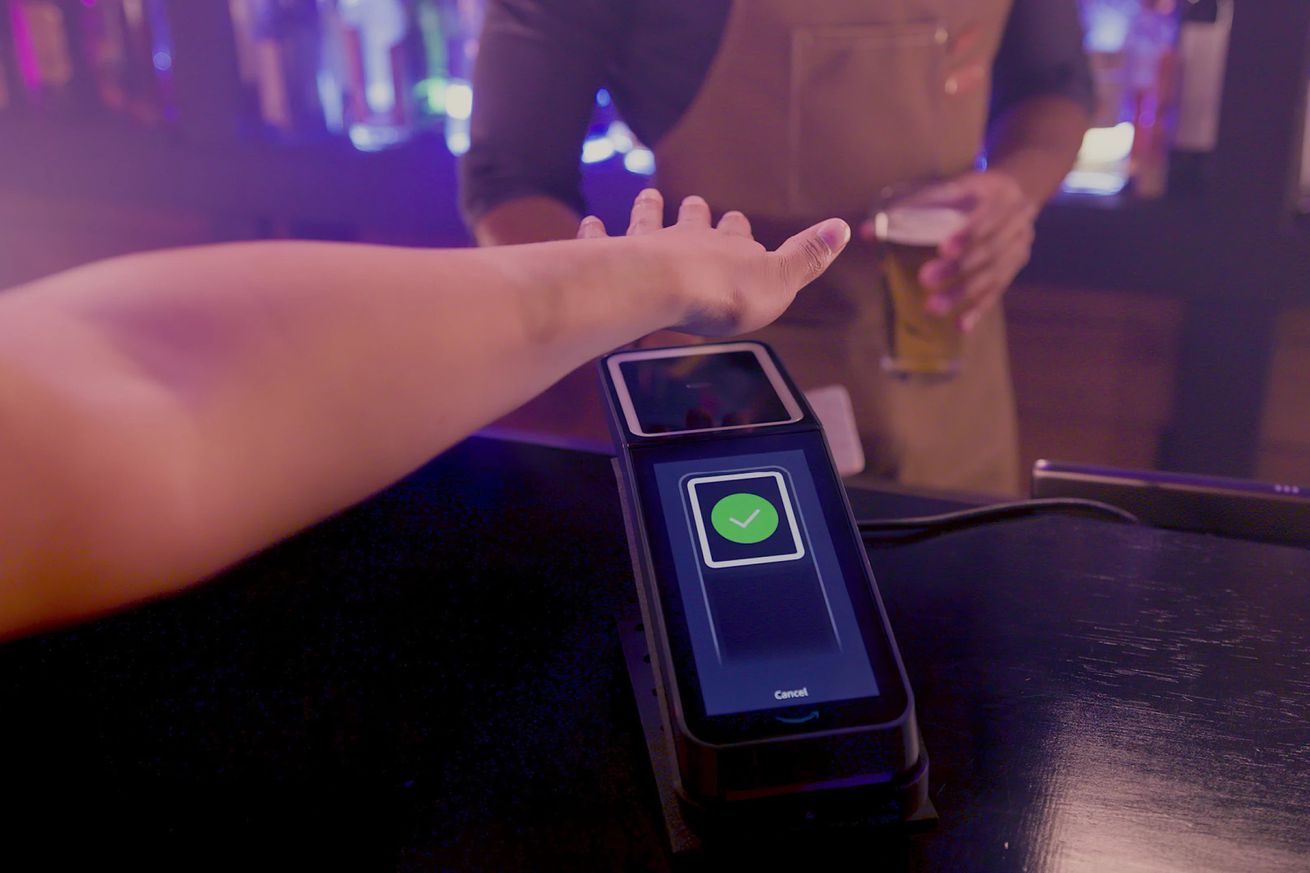
Amazon’s palm-scanning technology can let you buy a drink without getting out your ID
Amazon has a new, somewhat unsurprising application for the palm-scanning technology it uses for payments: age verification. In a post on Monday, the company announced that its Amazon One scanner can now verify your age when used in places like bars, making it much more than just an alternate way to make payments.
Amazon currently uses the palm scanner at its Go stores and some Whole Foods locations, allowing customers to pay for their groceries by hovering their palms over a scanner in lieu of pulling out credit cards or cash.
Amazon One with age verification is rolling out to the Coors Field baseball stadium in Colorado before expanding to “additional establishments in the coming months.” It doesn’t come as much of a surprise to see Amazon expanding its palm-scanning technology. My colleague James Vincent pointed out this possibility in 2020, stating at the time that Amazon One isn’t just a payment technology; it’s also “an identity technology, and one that could give Amazon more reach into your life than ever before.”
Now, Amazon is calling its One technology a “palm-based identity service” that can confirm that you’re over 21 when purchasing an alcoholic beverage and other age-restricted goods that require your ID.
Once you sign up for age verification through Amazon One — which requires a trove of personal information, including images of your palm, your government-issued ID, payment information, and a selfie — you can scan your hand at locations that use the service. The bartender or cashier will see a “21+” message and your selfie to verify your age and identity. You can then hover your hand over the device again to submit your payment.
Amazon says its palm-scanning technology uses cameras to match “multiple aspects of your palm,” including lines, ridges, and veins to the photos you provide to the service, which it stores in its cloud. This in itself could pose privacy and security risks, but Amazon maintains that users’ palm recognition data is safe.
The company says it uses “multi-layered security controls built into the hardware, software, and cloud infrastructure, to ensure that customer data stays encrypted and secure.” While Amazon also notes that it doesn’t store government-issued IDs, it says this information is still transmitted through a “certified identity verification provider” that verifies your ID, cross-references your selfie, and confirms your age to Amazon.
I don’t know about you, but I’d much rather do things the old-fashioned way: reaching for my wallet, taking out my ID, and showing it to the bartender — a process that takes no more than just a few seconds and also doesn’t put more of my personal information in the hands of a technology giant.

